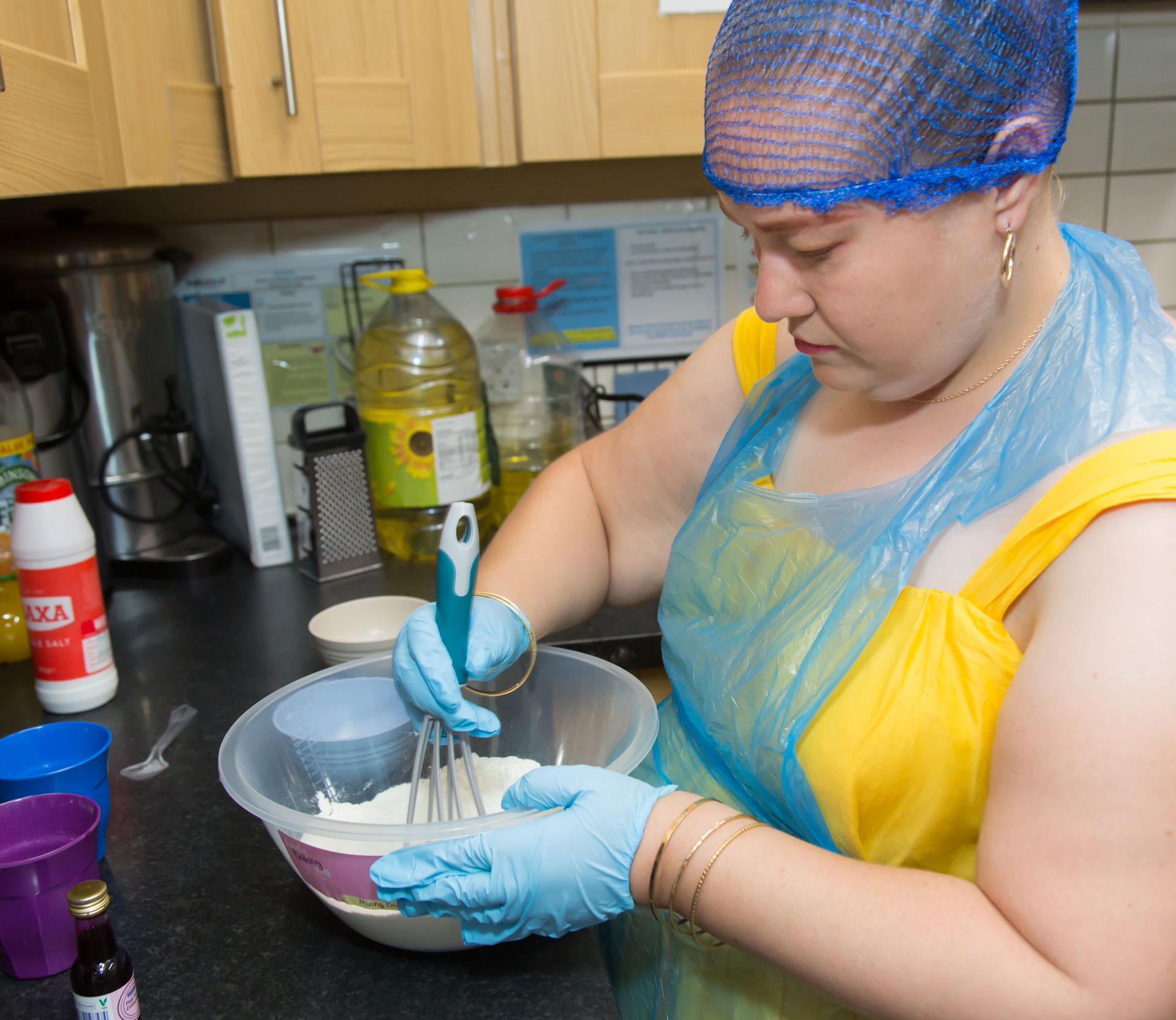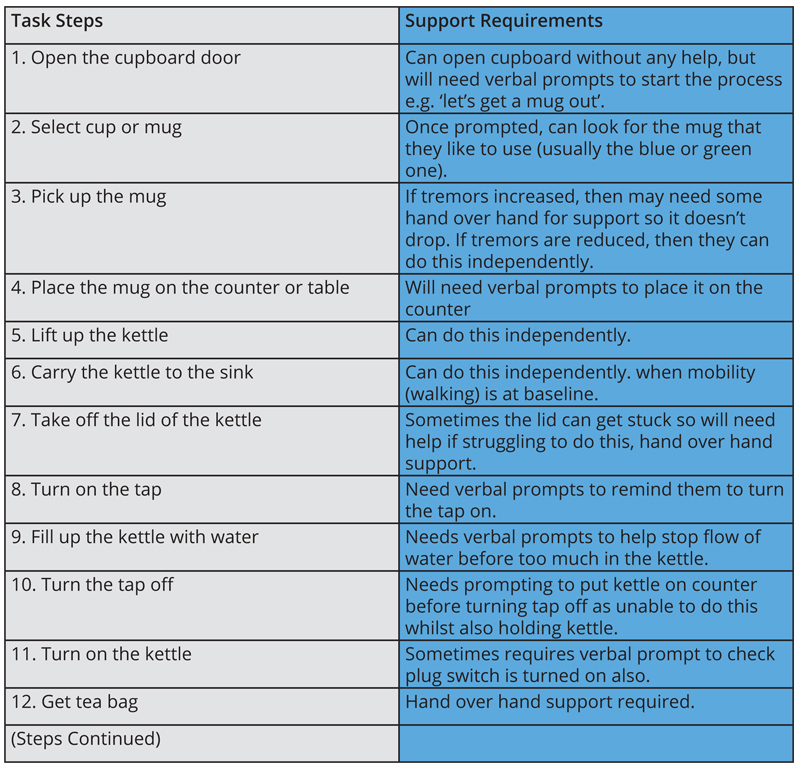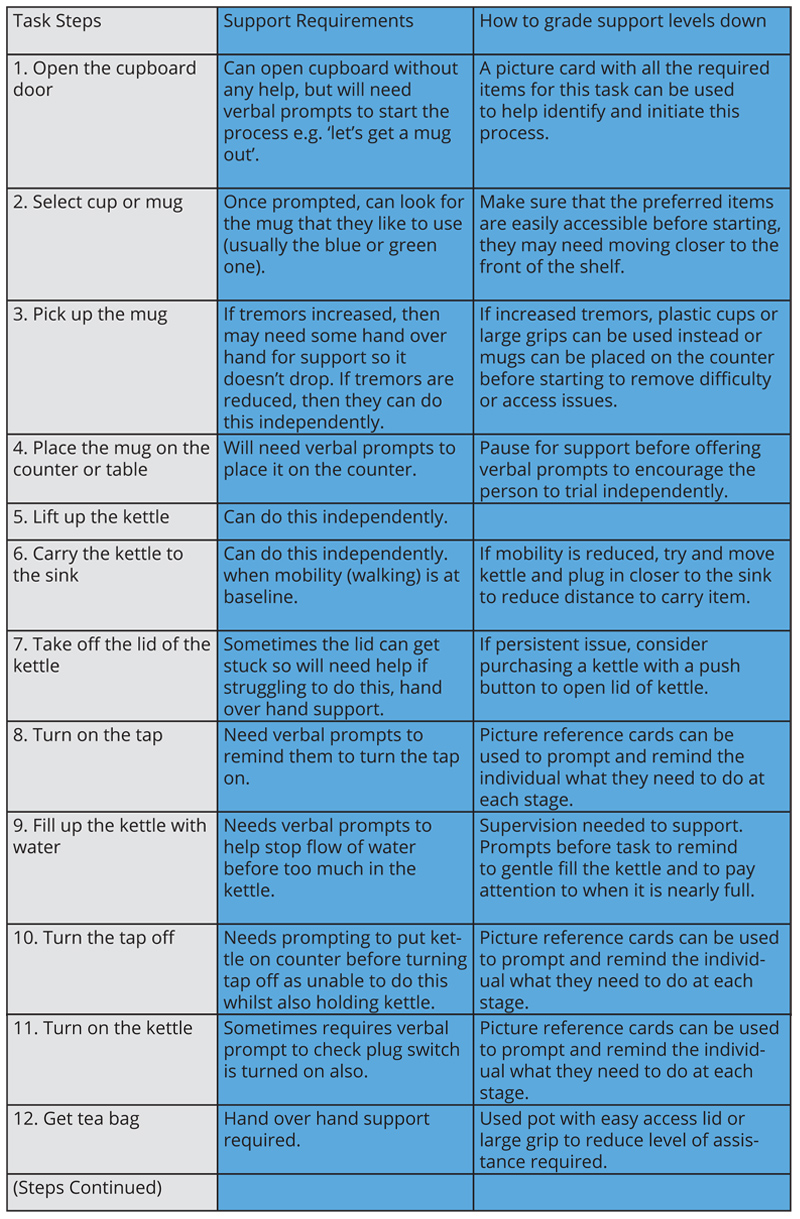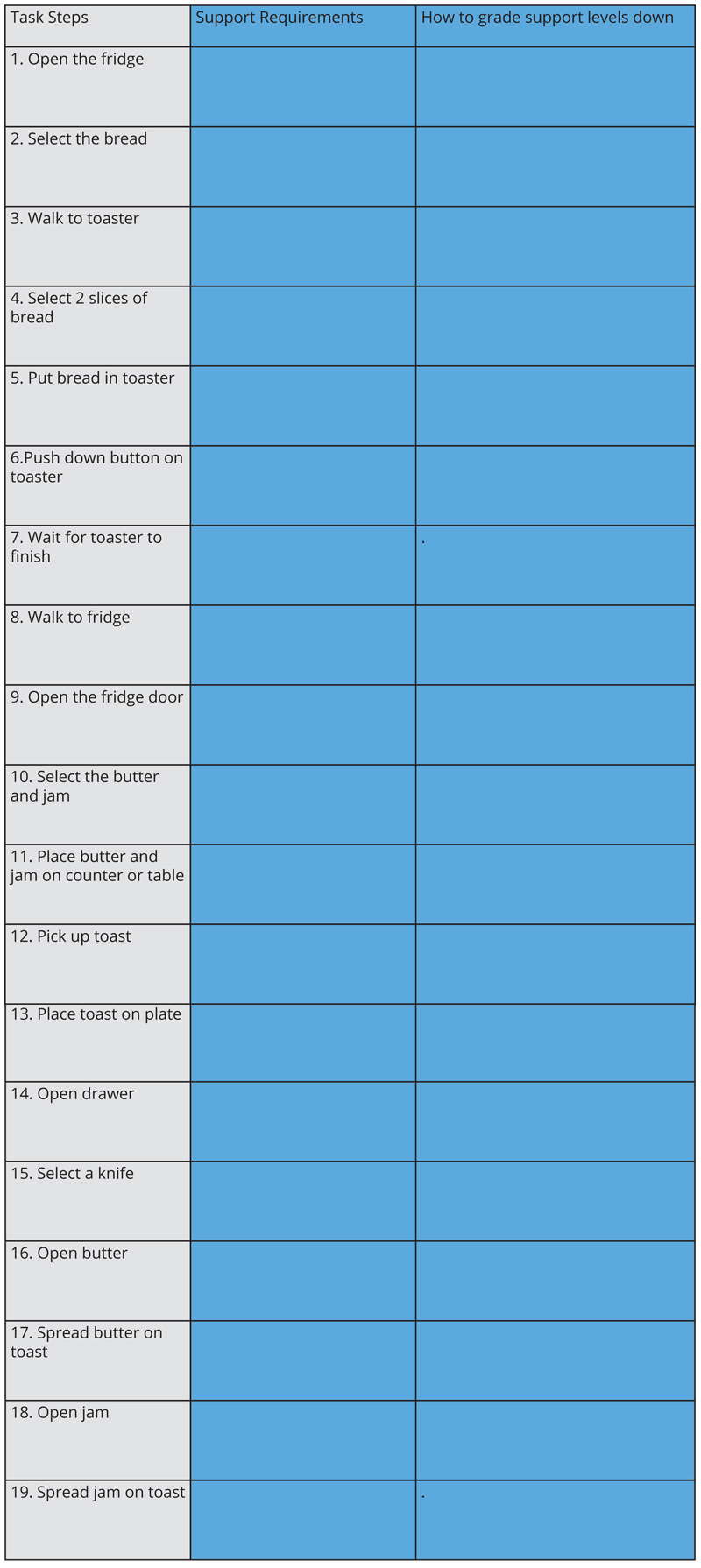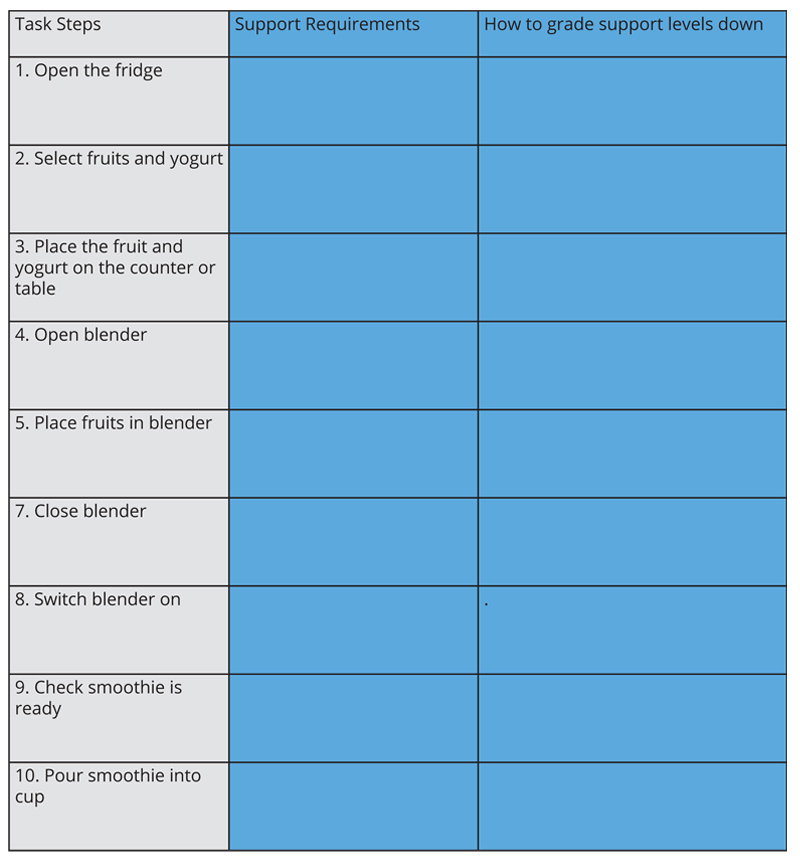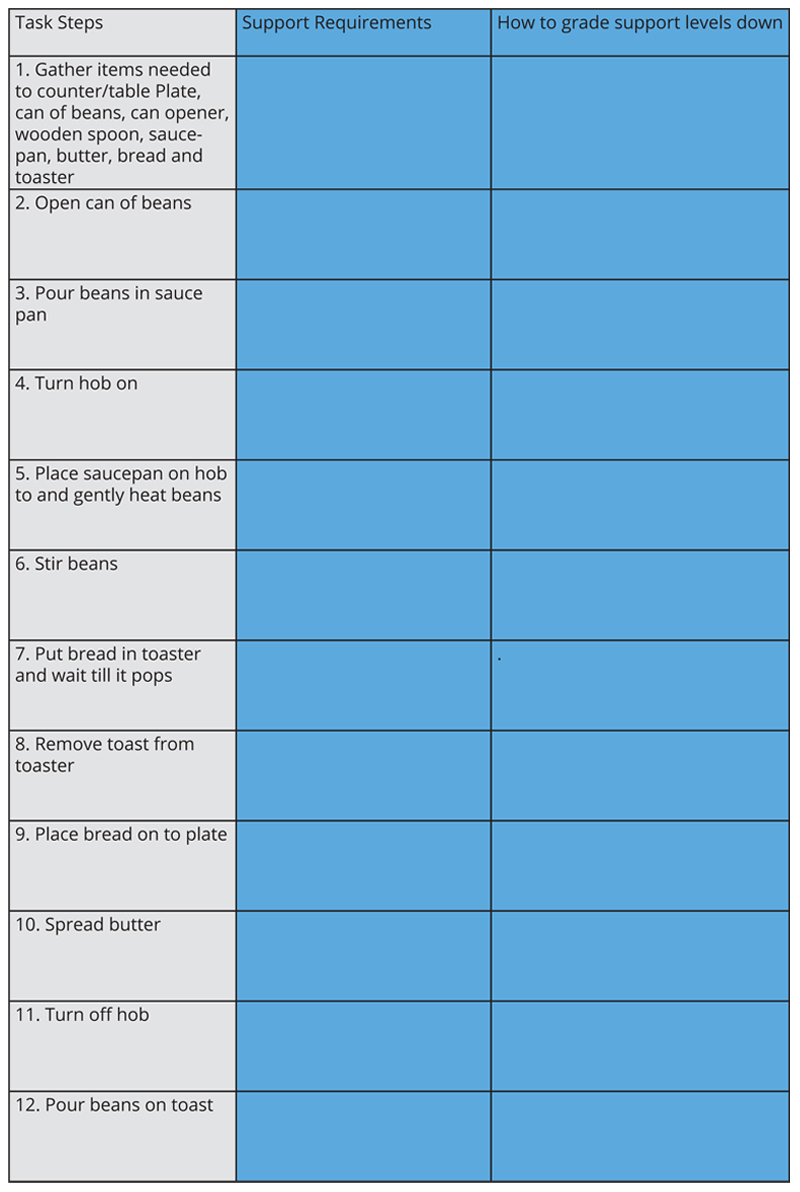Social distancing/isolation can be a difficult time for many of the people we support, especially when usual routines or plans are no longer happening. Although challenging, a positive we
can draw from this is the time and opportunity to develop independent living skills practice. In order to ensure the individual is fully supported with this, we need to identify what steps are involved with each task, what the person can do for themselves, and where we will or may need to continue to support.
Please be aware that we all have our own strengths and weaknesses. For example, person may be able to make a cup of tea, but still may need full support to make a snack.
A task analysis is a way to help break activities down into smaller, more manageable steps, to help to identify areas that may be more challenging for an individual because of cognitive and/or physical challenges. This then can then provide structure and focus to steps that can be developed to increase independence.
1. First we need to identify what steps are involved in the chosen task. For example: Making a
cup of tea
Task Steps:
1. Open the cupboard door
2. Select cup or mug
3. Pick up the mug
4. Place the mug on the counter or table
5. Lift up the kettle
6. Carry the kettle to the sink
7. Take off the lid of the kettle
8. Turn on the tap
9. Fill up the kettle with water
10. Turn the tap off
11. Turn on the kettle
12. Get tea bag
13. Place tea bag in the cup
14. Pour water into mug
15. Pause for tea to brew
16. Open drawer
17. Select teaspoon from drawer
18. Take teabag out of mug and put in the bin
19. Get milk out of the fridge
20. Open milk and pour into the mug
21. Stir milk with spoon
2. Next, we then need to identify which steps of the activity the person currently needs support with, and what type of support. Clear details can help all staff to accurately know what
the person can and can’t do:
3. To develop skills in different tasks, it is then helpful to consider ways to practice and to safely reduce/ or grade down the level of support to increase their independence. Please refer to the next 2 tables as examples.
4. Now we are going to look at how to develop skills for independence in making different breakfasts.
When using this guide please consider:
- Eating and drinking guidelines
- Allergies/ food intolerances
- Risk assessment
- Hygiene guidelines
- Healthy eating
- Preferences
Typical breakfast options have been included this included however the list is not comprehensive.
The following 3 tables have example breakfast options and the task analysis (task steps) completed, you can complete these tables with the individual in mind. Consider which steps of the activity the individual currently needs support with, what type of support and what could be put in place in order to safely reduce support.
The last table is blank, you may use this page to compete the task steps, support requirements and how to grade support levels down for the individual for any activity that the individual may need to develop their skills in.
Toast with butter and jam
Fruit smoothie with yogurt
For this example the fruits have been prepared before the activity began. You may want to prepare the fruit with the service user , this may involve peeling, and chopping fruit.
Beans on toast
When supporting individuals with their skill development there are a few principles that are really crucial:
Repetition – By repeating activities often, we build up the experience and learning to remember how we do certain parts of the tasks and become familiar as to what is expected of us. It gives us the opportunity to practice elements that we find difficult.
Start small – Do not try to be really ambitious with what you are doing, as this may scare the individual or lead them to feel like they are unable to do this. By ensuring that you are offering manageable activities, they will build their confidence and self esteem.
Consistency – we all have our own ways of doing things, how one person makes a cup of tea will vary to how the next person does, even in a small way. Therefore, finding out what is usual to the person you support is really important and then sticking to it. Accurate Task Analysis and up to date care plans play an important part of this to ensure that the steps are personal to the individual and that all staff have the same plan to follow. Changes in even 1 step can be overwhelming or confusing to individuals.
United Response have developed an informative, helpful resource on Active Support, and how to grade activity to support the person to be successful in what they are doing.
Please see the link for more information: https://www.unitedresponse.org.uk/Handlers/ Download.ashx?IDMF=9bb3bcc6-1352-4bd2-b0ed-10f8df02bd0c
Specific information on graded assistance can be found on page 5.

